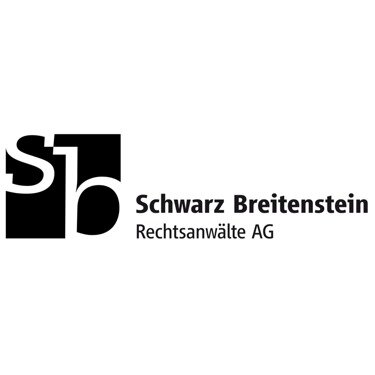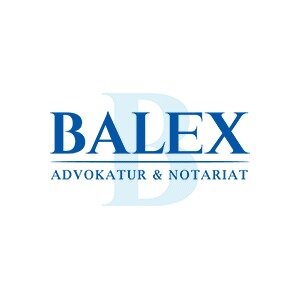Best Funds & Asset Management Lawyers in Switzerland
Share your needs with us, get contacted by law firms.
Free. Takes 2 min.
Or refine your search by selecting a city:
List of the best lawyers in Switzerland
About Funds & Asset Management Law in Switzerland
Switzerland is recognized globally as a leading center for funds and asset management due to its stable political environment, robust financial regulations, and long-standing tradition of banking excellence. Fund and asset management law in Switzerland governs the operations, structures, and compliance requirements for investment funds and the professionals who manage assets on behalf of clients. The legal framework ensures that investments are managed prudently and transparently, offering protection to investors while maintaining Switzerland's reputation as a secure and innovative financial hub.
Why You May Need a Lawyer
There are several situations where individuals or organizations may require legal advice in the area of funds and asset management in Switzerland. Common scenarios include:
- Setting up or restructuring investment funds, such as collective investment schemes or private funds
- Ensuring regulatory compliance with the Swiss Financial Market Supervisory Authority (FINMA)
- Drafting or reviewing fund prospectuses, offering documents, and management agreements
- Responding to changes in Swiss or international investment regulations
- Negotiating and drafting contracts with service providers, custodians, and investors
- Handling cross-border asset management arrangements
- Addressing disputes or litigation involving fund operations
- Dealing with tax matters relevant to fund structures and investors
- Ensuring anti-money laundering (AML) and know-your-customer (KYC) compliance
- Understanding the impact of global regulations on local operations, such as the Alternative Investment Fund Managers Directive (AIFMD)
Legal professionals help navigate these complex issues, ensuring compliance and protecting the interests of clients in a dynamic regulatory environment.
Local Laws Overview
Swiss funds and asset management activities are primarily regulated by the Collective Investment Schemes Act (CISA), the Collective Investment Schemes Ordinance (CISO), and related circulars and guidelines issued by FINMA. Important aspects of local laws include:
- Authorizations and Licensing - Asset managers, fund management companies, and custodians must obtain licenses from FINMA before performing regulated activities.
- Fund Structures - Swiss law recognizes different fund types, such as contractual investment funds, open-ended collective investment schemes, SICAVs (investment companies with variable capital), and limited partnerships for collective investments.
- Client Segmentation - Regulatory requirements differ depending on whether the investors are retail, qualified, or institutional clients.
- Prospectus and Disclosure - Strict rules apply for the preparation and publication of offering documents to promote transparency.
- Custody and Safekeeping - Mandated use of licensed custodians to safeguard fund assets and mitigate risks to investors.
- Ongoing Supervision - Regular reporting and audits are required to maintain approval and protect investors.
- Anti-Money Laundering (AML) - Compliance with AML regulations is critical for all asset management activities.
- Tax Considerations - Swiss funds benefit from favorable tax treatment, but compliance and structuring require professional guidance to optimize tax outcomes.
Professionals operating in this sector must stay abreast of both Swiss legislation and international developments that can impact fund management activities.
Frequently Asked Questions
What is a collective investment scheme in Switzerland?
A collective investment scheme refers to a fund or structure where investors pool assets so that a manager can invest these funds collectively on their behalf. Examples include mutual funds, SICAVs, and limited partnerships for collective investments.
Who regulates funds and asset managers in Switzerland?
The Swiss Financial Market Supervisory Authority (FINMA) is the primary regulator for funds and asset managers in Switzerland, overseeing licensing, ongoing supervision, and compliance matters.
What are the main fund structures in Switzerland?
Switzerland offers several fund structures, including contractual investment funds, SICAVs (investment companies with variable capital), limited partnerships for collective investment, and investment companies with fixed capital (SICAFs).
Does Swiss law distinguish between different types of investors?
Yes, Swiss law categorizes investors as retail, qualified, or institutional. The classification determines the level of regulatory protection, disclosure requirements, and permissible investment products.
Is a license necessary to manage assets or operate a fund in Switzerland?
Yes, asset managers, fund management companies, and custodians generally require a FINMA license. There are some exemptions, but legal consultation is crucial to determine eligibility and requirements.
What are the key regulatory requirements for launching a fund in Switzerland?
Key requirements include drafting compliant fund documents, appointing authorized service providers (such as a custodian and auditor), obtaining FINMA approval, and meeting ongoing reporting and audit obligations.
What is required to market a foreign fund in Switzerland?
Marketing foreign funds to Swiss investors is subject to regulatory requirements and may require FINMA approval, depending on the fund type and target investors. Legal advice is necessary to ensure compliance.
How does Switzerland address anti-money laundering in funds and asset management?
Asset managers must implement rigorous AML procedures, including client identification, transaction monitoring, and reporting suspicious activity, in accordance with Swiss AML legislation and FINMA guidelines.
How are funds and asset managers taxed in Switzerland?
Swiss funds are generally exempt from income taxes at the fund level, while distributions to investors may be subject to withholding tax. Tax treatment varies based on fund type and investor status, making legal guidance essential.
What are the risks of non-compliance with Swiss funds and asset management laws?
Non-compliance can lead to regulatory action, fines, criminal liability, reputational damage, and loss of business licenses. Proper legal support minimizes these risks.
Additional Resources
If you need further information or support, the following resources are valuable:
- Swiss Financial Market Supervisory Authority (FINMA) - The main regulatory body for financial and asset management services in Switzerland
- Swiss Funds & Asset Management Association (SFAMA) - Industry association providing insights and guidelines for the sector
- Federal Department of Finance (FDF) - Involved in financial regulations and policy making
- Swiss Bankers Association - Offers information and resources on banking and asset management practices
- Various Swiss law firms specializing in funds and asset management law
Next Steps
If you need legal advice regarding funds or asset management in Switzerland, here is how to proceed:
- Identify your needs, whether it is related to setting up a fund, compliance, contract drafting, or dealing with a regulatory issue
- Collect relevant documentation, such as existing fund documents, contracts, and correspondence with authorities
- Contact a qualified Swiss law firm or legal advisor with experience in funds and asset management
- Request an initial consultation to discuss your situation and receive tailored legal guidance
- Follow up with the necessary legal, regulatory, or contractual steps to address your requirements
Professional legal support is key to navigating the complex Swiss legal environment, safeguarding your investments, and ensuring ongoing compliance with all applicable regulations.
Lawzana helps you find the best lawyers and law firms in Switzerland through a curated and pre-screened list of qualified legal professionals. Our platform offers rankings and detailed profiles of attorneys and law firms, allowing you to compare based on practice areas, including Funds & Asset Management, experience, and client feedback.
Each profile includes a description of the firm's areas of practice, client reviews, team members and partners, year of establishment, spoken languages, office locations, contact information, social media presence, and any published articles or resources. Most firms on our platform speak English and are experienced in both local and international legal matters.
Get a quote from top-rated law firms in Switzerland — quickly, securely, and without unnecessary hassle.
Disclaimer:
The information provided on this page is for general informational purposes only and does not constitute legal advice. While we strive to ensure the accuracy and relevance of the content, legal information may change over time, and interpretations of the law can vary. You should always consult with a qualified legal professional for advice specific to your situation.
We disclaim all liability for actions taken or not taken based on the content of this page. If you believe any information is incorrect or outdated, please contact us, and we will review and update it where appropriate.
Browse funds & asset management law firms by city in Switzerland
Refine your search by selecting a city.
















